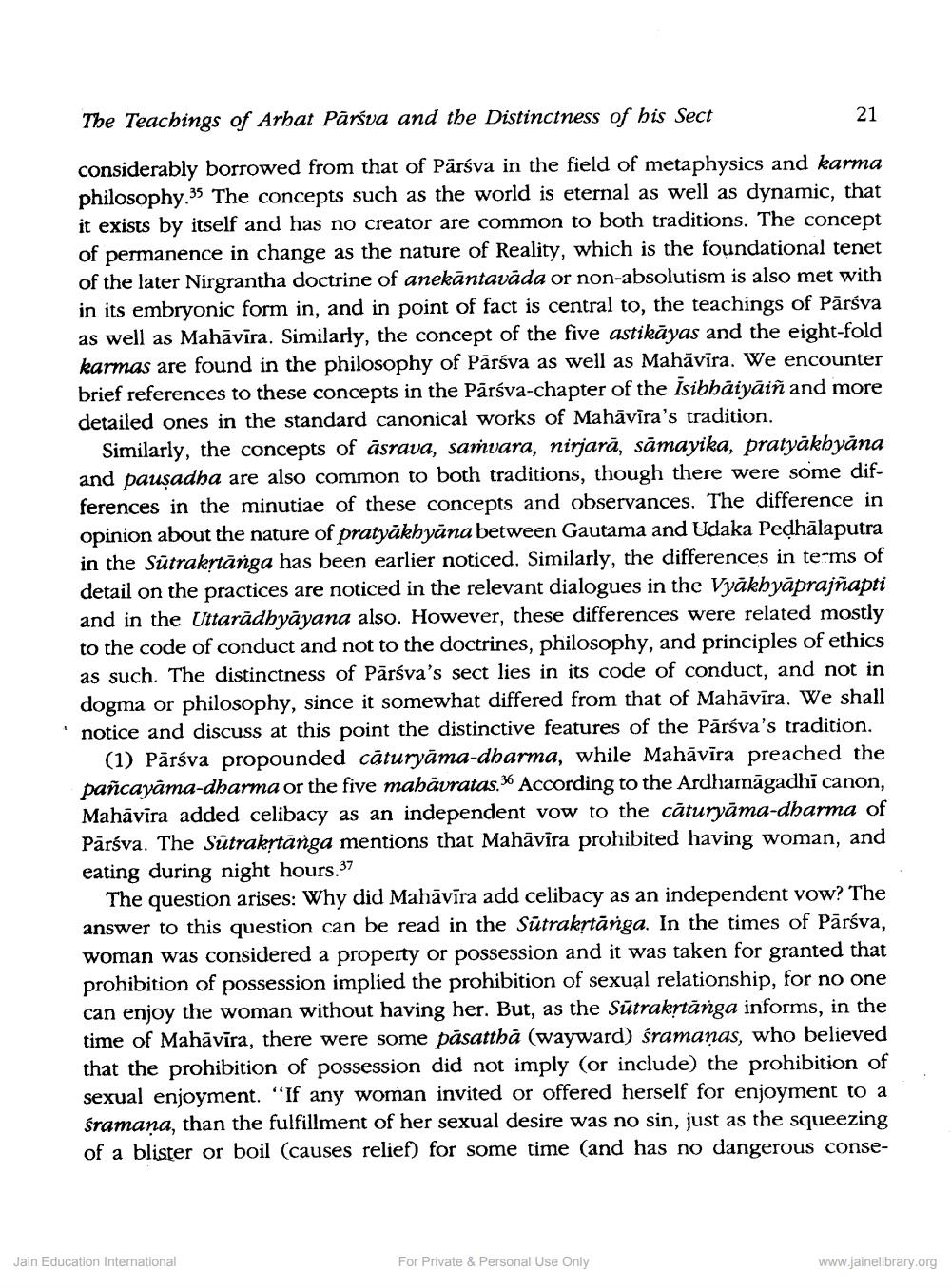________________
The Teachings of Arbat Parsva and the Distinctness of his Sect
considerably borrowed from that of Parsva in the field of metaphysics and karma philosophy." The concepts such as the world is eternal as well as dynamic, that it exists by itself and has no creator are common to both traditions. The concept. of permanence in change as the nature of Reality, which is the foundational tenet of the later Nirgrantha doctrine of anekantavada or non-absolutism is also met with in its embryonic form in, and in point of fact is central to, the teachings of Pārsva as well as Mahavira. Similarly, the concept of the five astikayas and the eight-fold karmas are found in the philosophy of Pärśva as well as Mahavira. We encounter brief references to these concepts in the Pärśva-chapter of the Isibhätyäin and more detailed ones in the standard canonical works of Mahavira's tradition.
21
Similarly, the concepts of åsrava, samvara, nirjarà, sämayika, pratyakhyāna and pausadha are also common to both traditions, though there were some differences in the minutiae of these concepts and observances. The difference in opinion about the nature of pratyakhyāna between Gautama and Udaka Pedhälaputra in the Sutrakṛtānga has been earlier noticed. Similarly, the differences in terms of detail on the practices are noticed in the relevant dialogues in the Vyakhyaprajnapti and in the Uttaradhyayana also. However, these differences were related mostly to the code of conduct and not to the doctrines, philosophy, and principles of ethics as such. The distinctness of Pärsva's sect lies in its code of conduct, and not in dogma or philosophy, since it somewhat differed from that of Mahavira. We shall notice and discuss at this point the distinctive features of the Pärśva's tradition.
(1) Pārsva propounded câturyama-dharma, while Mahavira preached the pañcayama-dharma or the five mahavratas. According to the Ardhamägadhi canon, Mahavira added celibacy as an independent vow to the caturyama-dharma of Pārsva. The Sutrakṛtänga mentions that Mahavira prohibited having woman, and eating during night hours.37
The question arises: Why did Mahāvīra add celibacy as an independent vow? The answer to this question can be read in the Sutrakṛtänga. In the times of Pārsva, woman was considered a property or possession and it was taken for granted that prohibition of possession implied the prohibition of sexual relationship, for no one can enjoy the woman without having her. But, as the Sutrakṛtānga informs, in the time of Mahavira, there were some påsatthà (wayward) śramanas, who believed that the prohibition of possession did not imply (or include) the prohibition of sexual enjoyment. "If any woman invited or offered herself for enjoyment to a sramana, than the fulfillment of her sexual desire was no sin, just as the squeezing of a blister or boil (causes relief) for some time (and has no dangerous conse
Jain Education International
For Private & Personal Use Only
www.jainelibrary.org




